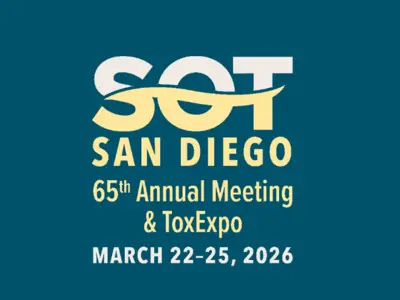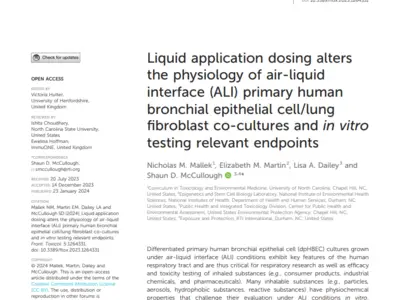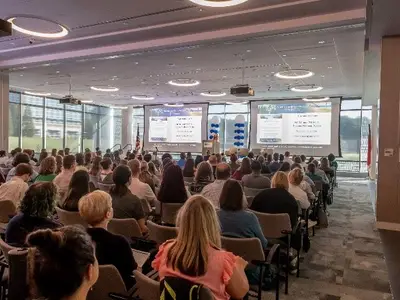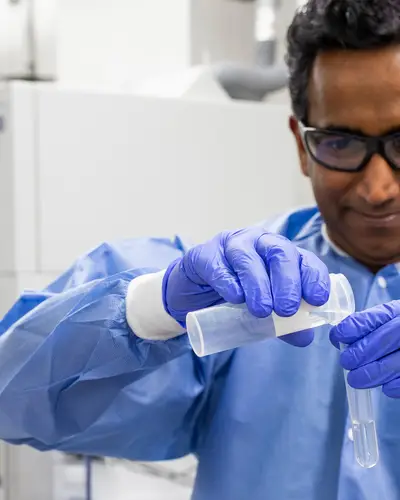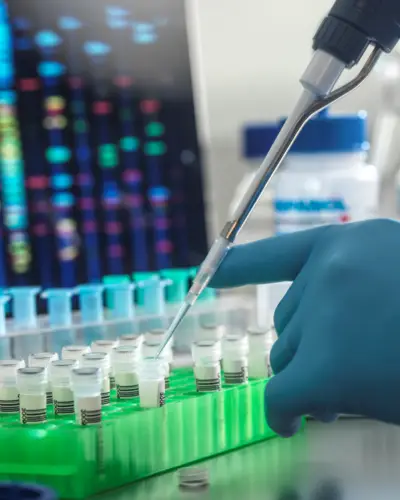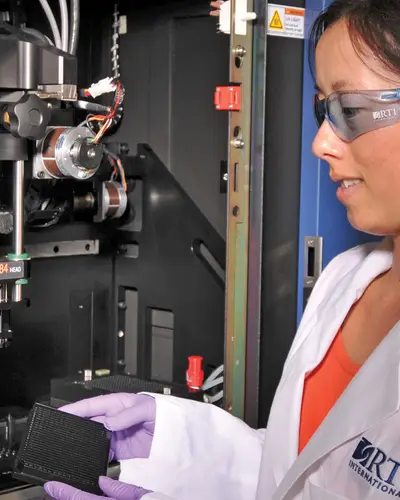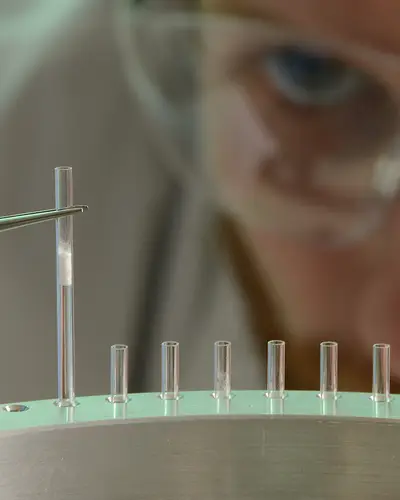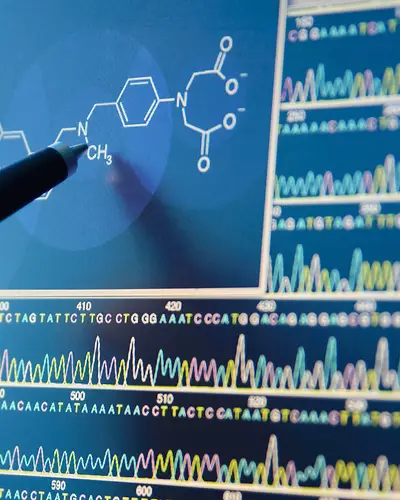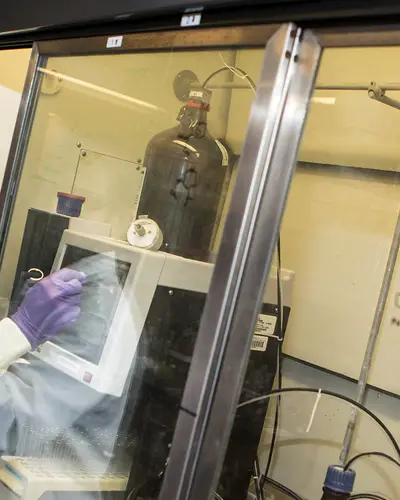Specialized in vitro and computational new approach methodologies (NAMs)-based solutions to challenges in toxicology testing, pharmaceutical development, and biomedical research.
Advancing Predictive and Exploratory Toxicology Solutions Through NAMs
In research, the shift to using in vitro and computational new approach methodologies (NAMs) can decrease our reliance on animal testing, while increasing the human relevance of toxicity testing, pre-clinical pharmaceutical development, and basic science research. By pairing human-derived in vitro systems with different testing methods that are more relevant to humans, investigators can see how substances impact the human body.
This approach allows us to discover how potential toxins or therapeutics affect human health down to the cellular and molecular level and understand how these effects may differ across the diverse human population. From there, we can apply cutting-edge computational modeling and analytical approaches such as in vitro to in vivo extrapolation (IVIVE) to interpret lab results and make important, life-saving predictions on how harmful or beneficial a substance might be for the public.
High-Throughput Screening: Accelerating Toxicology Testing with Predictive Insights
High-Throughput Screening (HTS) is a cornerstone of our approach at RTI, which allows us to quickly test many substances to see if they are toxic by using different cell types. Our multidisciplinary team emphasizes the importance of assay development, assessment, and transferability to make sure tests are reliable and applicable across a variety of contexts for clients and partners, encompassing the full spectrum of NAMs expertise.
- RTI method developers take a quality-first approach that focuses on transparent, documented, and reproducible results, whether through molecular and analytical assays or computational approaches. By utilizing the current best practices in the field during development, we believe our research is of higher value and more impactful to stakeholders.
- Consistent and reliable results are crucial to advancing scientific and industrial applications. RTI ensures that our assay development processes adhere to strict standards. This dedication to quality not only improves the reproducibility of our methods but also enhances their transferability to other research environments, ensuring broader applicability and impact.
- RTI’s computational biologists ensure that models, algorithms, and data processing techniques are as robust and transferable as physical assays. These methods integrate seamlessly with experimental data, enhancing the reproducibility of results across different platforms. By combining cutting-edge computational tools with validated experimental techniques, we guarantee that both in vitro and in silico methods can be reliably applied in other research or industrial settings.
Human-relevant models are critical for understanding and characterizing health impacts of inhaled exposures. RTI’s respiratory scientists are at the forefront of method development, combining cutting-edge innovation with the robust characterization and validation required to build confidence in their findings.
Learn more about our in vitro respiratory modeling and toxicity testing services.
- Understanding intestinal toxicity is more important than ever in today’s world, where the prevalence of food additives, environmental contaminants, and pharmaceuticals poses significant risks to gut health. At RTI, we recognize the complexity of studying these exposures and are committed to addressing this critical area of concern.
- Human-relevant models are at the forefront of RTI’s research, enabling precise evaluation and characterization of how these exposures impact intestinal function. Our team of intestinal toxicity scientists excels in method development, combining innovative approaches with rigorous validation and characterization. This commitment ensures that our results are reliable and actionable, empowering stakeholders to make informed decisions about gut health.
- Hepatic metabolism and clearance are investigated using advanced in vitro and in vivo models to evaluate the metabolic pathways and elimination processes of compounds. These studies are essential for predicting drug-drug interactions, bioavailability, and potential toxicity.
- State-of-the-art techniques are employed to assess enzymatic activity, identify metabolites, and determine clearance rates. Both phase I and phase II metabolic pathways are analyzed to ensure comprehensive profiling of drug metabolism.
- Utilizing proprietary and commercially available assays, we deliver crucial insights into the pharmacokinetics of compounds. Our data-driven approach informs strategic decisions in drug development and safety assessments, empowering clients to navigate the complexities of the pharmaceutical landscape with confidence.
RTI’s computational biologists actively work to understand how to model biological responses to chemicals and stressors. This is important for characterizing both drug metabolism and effects of unintended exposures. Leveraging mechanistic testing, such as in vitro systems, RTI scientists provide new insights on how cellular level signals might impact on the organism level.
Learn more about our pharmacokinetic modeling and IVIVE services.
RTI's scientists are experts in in vitro pharmacology, toxicity, and mechanism of action. Using the latest technology ensures high-quality, reproducible results that drive drug discovery forward.
Learn more about our in vitro pharmacology, bioassay development, and HTS services.










